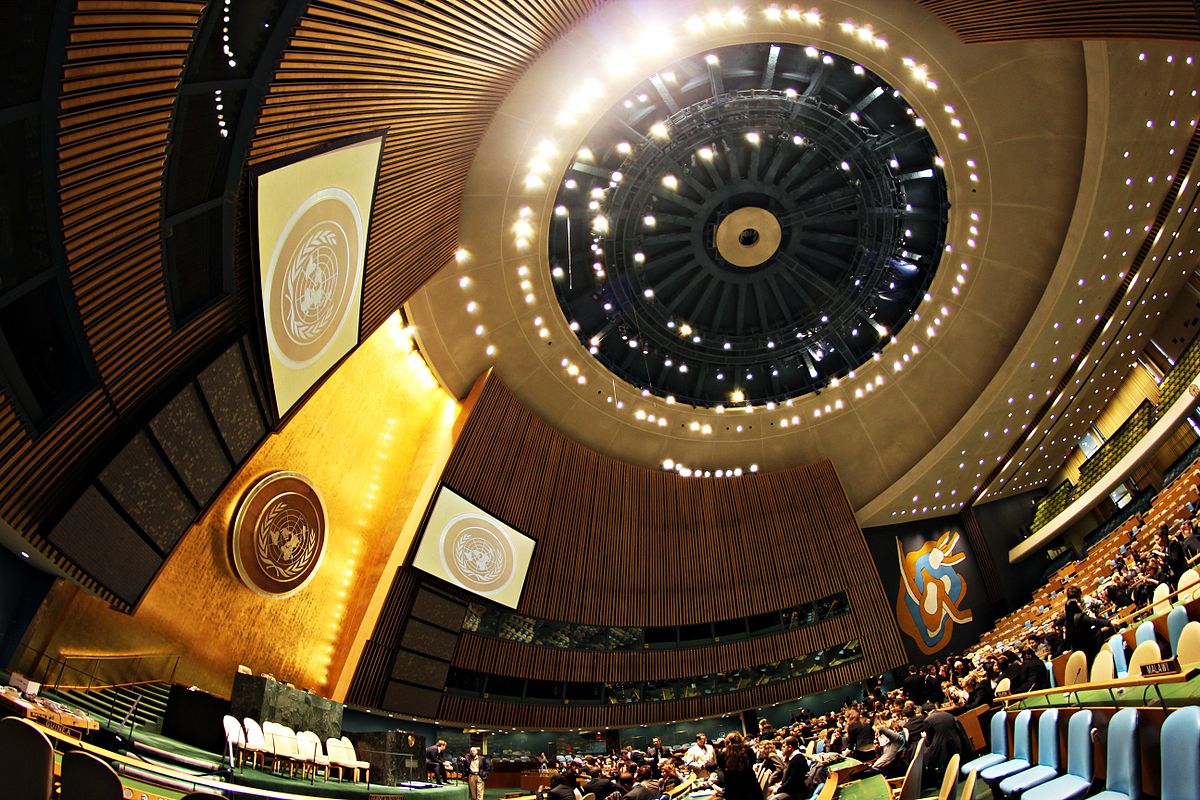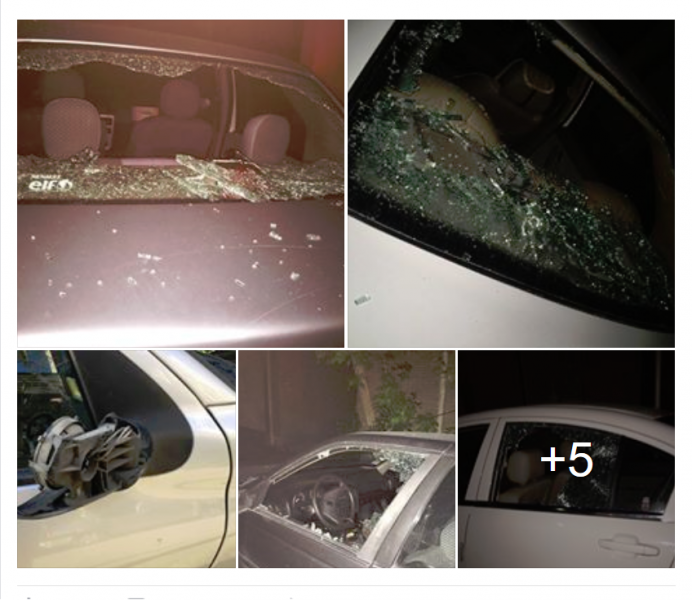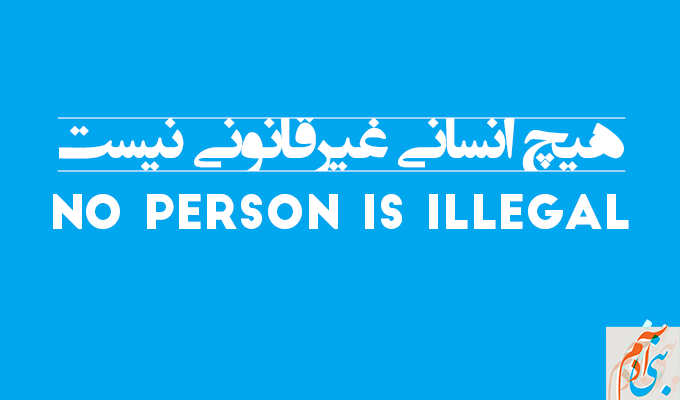Originally published on Global Voices.
Reza Khandan, the husband of award-winning Iranian human rights lawyer Nasrin Sotoudeh, found his neighborhood in north Iran beset by a mob while he and a group of friends were watching Schindler’s List, the critically acclaimed film about a Nazi businessman who used his factory to save hundreds of Jews.
Guests’ cars were vandalized. Car windows were smashed and property damaged. In just a few minutes, the small street was covered with glass.
In a public post on Facebook, Khandan shared the details of the attack, along with photos taken of vandalized cars. In the first 24 hours, the post was shared 95 times on Facebook. It generated a lot of comments expressing a range of emotions, from outrage to sadness.
Khandan’s Facebook post reads:
Last night we rented the film Schindler’s List. In one part of the film we saw how Nazi agents raided Jewish homes. There were terrible sounds of shooting and killing and destruction. You could see how family members were detained and the massacres begin. Little by little, I could feel the sounds getting closer and closer, combining with the sounds of gunshots and angry shouting.
A few moments later we realized the noises we thought were part of the film were coming from outside the building. A mob had arrived at the head of the street and were going up and down the alley, from beginning to end, causing destruction to the cars parked there. The sound of the windows of the cars breaking was like the sound of the gunshots from the film.
Within a few minutes at least 16 cars had been destroyed. Violence, fear, and panic had been spread by the time the mob fled the scene at 1:30 am. All of our cars were shattered: those of the people who lived here and those of our guests who came from the city.
A few minutes after the mob fled — after being contacted by terrified residents facing a street filled with broken glass and damaged cars — police and firefighters arrived on the scene.
Original:
به پیشنهاد مهراوه دیشب نشستیم تا فیلم “لیست شیندلر” را ببینیم. در قسمتی از فیلم که ماموران نازی به خانه های یهودیان هجوم آورده و با انواع صداهای وحشتناک و تیراندازی و کشتار و تخریب، تمام اعضای خانواده ی آنان را بازداشت و قتل عام را آغاز می کنند؛ کم کم احساس کردم صدای این هجوم شبانه بیشتر و بیشتر و واقعی تر به نظر می رسد. صدایی شبیه شلیک گلوله و فریاد و عربده هایی که کم کم واقعی تر شده است.
چند لحظه بعد متوجه شدیم سر و صداهای فیلم عینا از بیرون ساختمان هم می آید. گروهی چند نفره سر خیابان از ماشین شان پیاده و وارد کوچه شده و از ابتدای کوچه به ترتیب شروع به تخریب و شکستن شیشه های تمام خوردروهای پارک شده در کوچه شده اند. صدای شکستن شیشه های ماشین ها عین صدای شلیک گلوله بود که پشت سرهم می آمد. ظرف چند دقیقه حداقل 16 ماشین را تخریب و با فحاشی و ایجاد رعب و وحشت در ساعت یک و نیم شب از محل گریخنتند.
بیشتر ماشین های ما که ساکن هستیم و مهمان هایی که برخی از آنان از شهرستان آمده بودند همه را متلاشی کرده و رفتند. دقایقی بعد از تماس ساکنین گروههای مختلف پلیس و آتش نشانی در محل حاضر و با انبوهی از ماشین های تخریب شده و کوچه ای پر از شیشه های خرد شده و اهالی وحشت زده روبرو شدند.
و این تصاویر گوشه ای از تخریب ماشین هاست که ظرف یکی دو دقیقه در کوچه خلق شد
It’s not clear whether or not the vandals were directly targeting Khandan or the choice of film. The family of Reza Khandan and Nasrin Sotoudeh have lived under constant surveillance and threats for a number of years. Many who read and shared the post online were under the impression that the vandalism was timed to coincide with the viewing of Schindler’s List. Most also saw it as one of many acts designed to intimidate the family and their friends.
In international arenas, the current administration of President Rouhani has disavowed the Holocaust denial that former President Ahmadinejad attempted to popularize. Yet, as recently as 2013, Iran’s supreme leader publicly questioned its historical reality.







